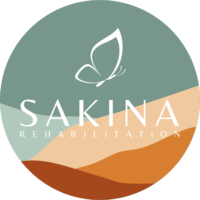When it comes to addiction recovery, most people focus on therapy, medication, and support groups. However, one crucial aspect that is often overlooked is nutrition. The role of nutrition in addiction recovery is vital, as a healthy diet can significantly support both the physical and mental aspects of sobriety. At Sakina Alcohol and Mental Health Rehab, we understand that recovery is a holistic process, and incorporating proper nutrition is an essential component of our treatment programs. In this blog, we’ll explore how a balanced diet can aid in the recovery process and why it’s a crucial part of maintaining long-term sobriety.
The Importance of Nutrition in Recovery
Addiction takes a toll on the body, often leading to malnutrition and deficiencies in essential vitamins and minerals. The damage caused by substance abuse can weaken the immune system, impair cognitive function, and affect overall well-being. The role of nutrition in addiction recovery is to replenish these vital nutrients, restore physical health, and support the body’s natural healing processes.
1. Restoring Physical Health
Substance abuse can deplete the body of essential nutrients, leading to various health issues such as weakened immunity, gastrointestinal problems, and chronic fatigue. A well-balanced diet rich in vitamins, minerals, and antioxidants helps repair the damage caused by addiction. At Sakina, we emphasize the importance of a nutrition plan tailored to each client’s needs, ensuring they receive the right nutrients to rebuild their physical health.
2. Supporting Mental Health
The role of nutrition in addiction recovery extends beyond physical health; it also plays a crucial role in mental well-being. A healthy diet can help stabilize mood, reduce anxiety, and improve cognitive function. Nutrients such as omega-3 fatty acids, found in fish and flaxseeds, are known to support brain health and may reduce symptoms of depression and anxiety, which are common in individuals recovering from addiction.
3. Reducing Cravings
A balanced diet can help reduce cravings for substances. Certain foods, such as those rich in protein and fiber, help regulate blood sugar levels, which can prevent the mood swings and energy crashes that often trigger cravings. At Sakina, we incorporate nutrition education into our programs to help clients understand how their diet can influence their cravings and support their sobriety.
4. Enhancing Energy and Vitality
Addiction often leaves individuals feeling depleted and lacking in energy. Proper nutrition can help restore vitality by providing the body with the fuel it needs to function optimally. Complex carbohydrates, healthy fats, and lean proteins are all essential for maintaining steady energy levels throughout the day. At Sakina, our nutrition plans are designed to help clients regain their strength and energy, which is essential for participating fully in the recovery process.
5. Supporting Long-Term Sobriety
The role of nutrition in addiction recovery is not just about immediate health benefits; it also plays a key role in maintaining long-term sobriety. A healthy diet can help individuals develop better lifestyle habits, which are crucial for preventing relapse. By learning to nourish their bodies with the right foods, clients at Sakina can build a strong foundation for a healthy, sober life.
Integrating Nutrition into Recovery Programs at Sakina
At Sakina Alcohol and Mental Health Rehab, we believe that nutrition is a fundamental aspect of recovery. Our holistic approach to treatment includes personalized nutrition plans that cater to each client’s unique needs. We provide nutrition education as part of our program, helping clients understand the role of nutrition in addiction recovery and how it can support their journey to sobriety.
1. Nutrition Education
Education is a key component of our approach. We provide clients with the knowledge they need to make informed choices about their diet. This includes understanding how different foods affect their mood, energy levels, and cravings. By educating clients on the role of nutrition in addiction recovery, we empower them to take control of their health and support their sobriety through proper diet.
2. Cooking Classes and Workshops
At Sakina, we also offer cooking classes and workshops that teach clients how to prepare healthy, balanced meals. These classes are designed to be practical and engaging, giving clients the skills they need to maintain a nutritious diet after leaving the rehab facility. Cooking classes also provide an opportunity for clients to connect with others in recovery, fostering a sense of community and support.
Conclusion: Nourishing the Body, Mind, and Spirit in Recovery
The role of nutrition in addiction recovery is an essential, yet often overlooked, aspect of the healing process. At Sakina Alcohol and Mental Health Rehab, we recognize the importance of a holistic approach to recovery that includes proper nutrition. By nourishing the body with the right foods, our clients can enhance their physical health, support their mental well-being, and strengthen their commitment to long-term sobriety.
If you or a loved one is struggling with addiction, consider the benefits of a comprehensive recovery program that addresses not only the psychological and emotional aspects of addiction but also the physical. At Sakina, Ras Al Khaimah, UAE, near Dubai, we’re here to support you every step of the way, providing the tools, education, and encouragement needed to build a healthy, fulfilling life in sobriety.


